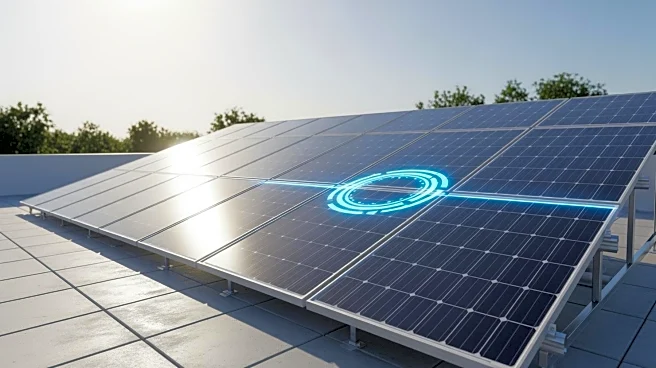What's Happening?
Wealthy Nigerians are increasingly importing Chinese solar panels as a response to the country's ongoing energy crisis, where over a third of the population lacks access to electricity. The unreliable
national grid has prompted individuals and businesses to seek more dependable energy solutions. Ebipere K. Clark, an energy consultant, highlights that the primary motivation for this shift is energy security and predictability. The demand for solar panels is growing among commercial, industrial, and residential customers. Despite efforts to establish local solar panel manufacturing, Nigeria faces challenges due to its reliance on imported materials and the complexity of solar manufacturing processes.
Why It's Important?
The shift towards solar energy in Nigeria underscores the broader implications of energy insecurity in the region. As the largest market in Africa for generator set replacement, Nigeria's move to solar could significantly impact the energy landscape. However, the reliance on Chinese imports highlights the challenges African countries face in developing local manufacturing capabilities. This dependency on imports could affect economic growth and job creation in the renewable energy sector. The situation also reflects the global supply chain dynamics, where Chinese manufacturers dominate due to their advanced production processes and access to essential materials.
What's Next?
In the near term, Nigeria and other African nations are expected to continue relying on Chinese solar imports due to supply chain realities and the lack of local supporting industries. High tariffs and taxes on equipment further hinder domestic production competitiveness. Efforts to establish local manufacturing will need to address these challenges, including developing industries for essential materials like glass and aluminum. The ongoing energy crisis may prompt further policy discussions and investments in renewable energy infrastructure to reduce dependency on imports and enhance energy security.
Beyond the Headlines
The reliance on Chinese solar panels raises questions about the sustainability and resilience of Nigeria's energy strategy. The environmental and social governance aspects of importing solar technology from China, where production processes are well-established, contrast with the potential benefits of developing local industries. This situation highlights the need for strategic planning in energy policy to balance immediate energy needs with long-term economic and environmental goals.









